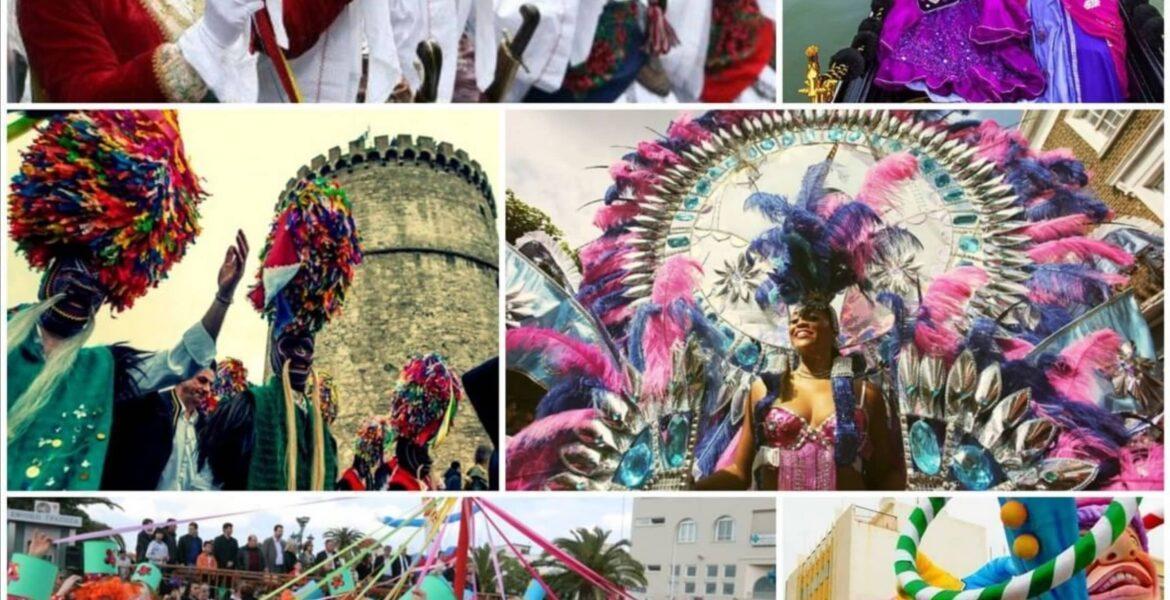This period features some of the most colourful and impressive celebrations of the year, including parades, costume parties, street performances, flour wars, and, in some places, local fertility-promoting rites with pagan roots.
The biggest events and most parties take place the last weekend. This year, that’s March 5th and 6th.
Preparing for Lent
Greek Carnival or Apokries is a family celebration with street parties, parades, and masquerades. Carnival ( from Latin: carne and vale = goodbye to meat) marks the days before the fasting begins.
The word Apokries in Greek comes from the words apochi and kreas (abstinence + meat) so, it means avoiding meat.
The Greek Carnival is divided into 3 weeks, all preparing for the fasting. The first week opens the carnival and starts with a specific church celebration. The second week is called Kreatini in which one is allowed to eat meat every day.
Tsiknopemptee
The Thursday in the Kreatini week is called Tsiknopemptee. Tsikno means the smell of grilled meat and Pempti means Thursday. This Thursday is a day to take your family out to a tavern and eat grilled meat. Tsiknopemptee is also the day when the parties start and the first masquerades for the Greek Carnival make their appearance.
The last week before Lent is called Cheese Week, White Week or Tyrini. Only dairy and fish are allowed during that week, no meat. The carnival celebrations end on Kathara Deftera or Clean Monday.
Ancient Greek roots
Carnival is related to the pagan rituals of the ancient worship celebrations to Dionysus, the God of wine, agriculture, fertility, dance, and fun. The ancient Greeks held this wine and dance festival in February/March to celebrate spring. There was a parade with a Dionysos figure, fancy dress, and masks.
Greek Carnival in Patras
The best-known is in Patras, including a children’s carnival with a large parade of school children. Patras’ carnival is one of the most famous in Greece. It ends with the burning at the stake of the King of Carnival and a big parade of floats and costumed groups. Thousands of locals and tourists attend the carnival.
Clean Monday and Koulouma
The carnival ends on Kathara Deftera or Clean Monday. On this day, the fasting begins and the Koulouma or (traditions related to Lent) start.
On Clean Monday, most Greeks leave the city for the countryside to spent family time, to have a picnic and to fly a kite.
The traditional food eaten on Koulouma is taramas, a red kind of caviar, halvas, a cornstarch sweet and a Clean Monday bread called lagana.
Many local bakeries are open on Clean Monday and sell this special bread.


